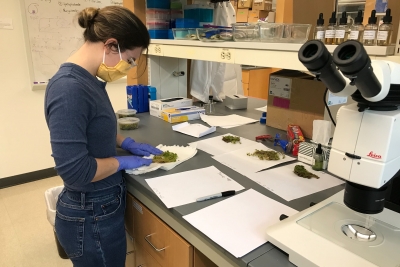Biology majors are encouraged to engage in research in areas of their interest.
Research at Duke is organized by Principal Investigators (PIs), faculty scientists who receive grants, direct labs, mentor post-docs, graduate students and undergraduates. There are over 500 active PIs in the biological and biomedical sciences at Duke, a Tier 1 research institution, and you may choose from mentors across Duke, including faculty in Trinity College of Arts & Sciences, the Medical School, the Pratt School of Engineering and the Nicholas School for the Environment.
There are several ways to get involved in research at Duke:
- Volunteer, Paid & Work-Study Positions are excellent starting points for getting into a lab. Contact PIs directly, use the MUSER resource (several cycles per year), look for jobs on Duke's JobX site, and sign up for the biomajors listserve to receive announcements including postings for research positions. NOTE: No credit can be awarded for paid work.
- Independent study provides research experience and academic credit for laboratory, field work, or theoretical research. Independent study projects may be done with any faculty in the biological sciences, at other institutions and even during study abroad. Info on getting started & finding mentors.
- You may want to pursue Graduation with Distinction, which requires an honors thesis as part of your independent study project.
- Summer Research Programs (commonly called Research Experiences for Undergraduates), either here at Duke or elsewhere. These programs are typically competitive, with applications due in January or February. For listings of programs, visit the Duke Undergraduate Research Support Office: Information on grants, assistantships, undergraduate research links, summer programs and more.

